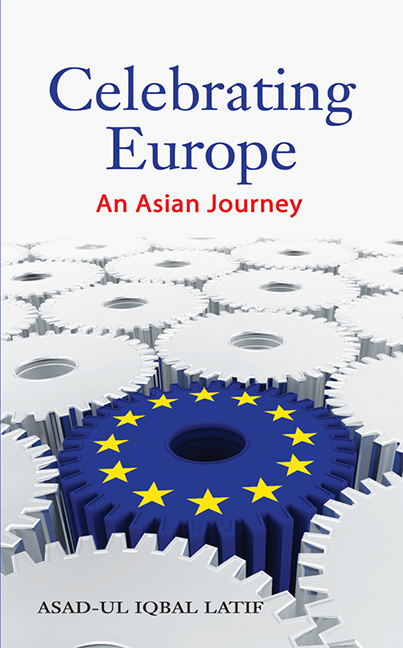Book contents
- Frontmatter
- Dedication
- Contents
- Foreword
- Acknowledgements
- Introduction: Europe
- 1 Europe Abroad
- 2 Gentiles
- 3 The Berlin Wall
- 4 Soviets of the Mind
- 5 The Secular Soul
- 6 The Leopard's Italy
- 7 England
- 8 Champagne France
- 9 Two Bengali Greeks
- 10 The Polish Hospital
- 11 Postmodern Europe
- Bibliography
- Index
- About the Author
10 - The Polish Hospital
Published online by Cambridge University Press: 21 October 2015
- Frontmatter
- Dedication
- Contents
- Foreword
- Acknowledgements
- Introduction: Europe
- 1 Europe Abroad
- 2 Gentiles
- 3 The Berlin Wall
- 4 Soviets of the Mind
- 5 The Secular Soul
- 6 The Leopard's Italy
- 7 England
- 8 Champagne France
- 9 Two Bengali Greeks
- 10 The Polish Hospital
- 11 Postmodern Europe
- Bibliography
- Index
- About the Author
Summary
Midway through a fifteen-day conducted tour of Eastern Europe in 2009, my wife, Mala, slipped in the snow in the Slovakian town of Banska Bysteria and fractured her left foot. The shock destroyed a kind of reverie that had enveloped me. Grand thoughts of visiting parts of the vanished Habsburg and Soviet empires had made me sign up for the trip although it was winter. Who could have blamed me? If, for roughly US$2,500, you were to fly from Singapore and see Munich, Salzburg, Vienna, Budapest, Banska Bysteria, Cracow, Auschwitz-Birkenau, Warsaw, Poznan, Berlin, Dresden, and Prague, you, too, would throw caution to the December winds and travel through the rolling plains, hilly roads, and sleepy villages that lie in one of the most historically charged parts of Europe. The tour of a lifetime turned out to be a nightmare sufficient for a lifetime, when, screaming in agony, my wife was carried aboard the tour coach. It made its way to Cracow, where the Hungarian driver, Kiseri Csaba, drove us straight to the 5th Military Clinical Hospital and Polyclinic. Sam Lee, the agreeable tour leader from Super Travels in Singapore, went about with his usual calm efficiency trying to get Mala admitted.
Since the tour bus was too large to enter the hospital premises without blocking other vehicles, the security guard ran inside and returned with a wheelchair. I pushed it into the Emergency ward, and Mala was admitted to hospital. Over the next four days, a string of doctors and nurses — particularly the English-speaking Doctors Michał de Lubicz Jaworowski, Dariusz Sienkiewicj, and Krzysztof Miśkowiec, and a nurse, Sister Natalia — cared for my wife as they would for a child too young to speak for, indeed, neither Mala nor I speak any Polish. One English-speaking doctor bought her a bottle of mineral water and taught her that the Polish word for the all-important painkillers was nabol; he also told the non-English-speaking nurses that she did not eat beef or pork.
- Type
- Chapter
- Information
- Celebrating EuropeAn Asian Journey, pp. 130 - 139Publisher: ISEAS–Yusof Ishak InstitutePrint publication year: 2012



